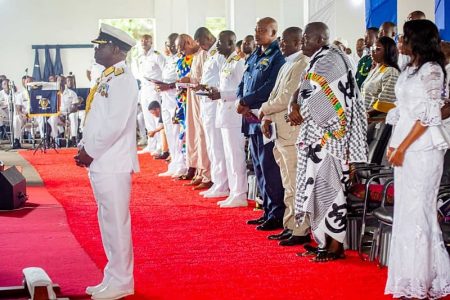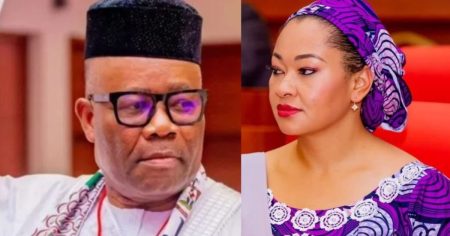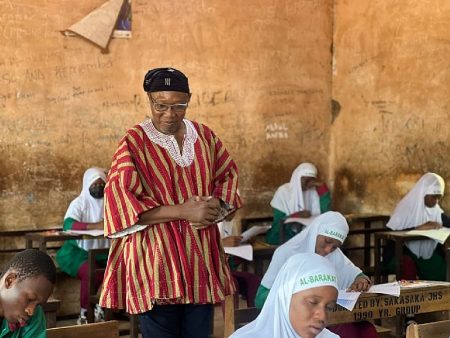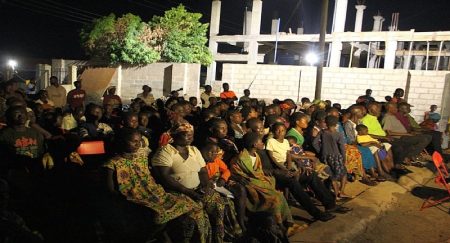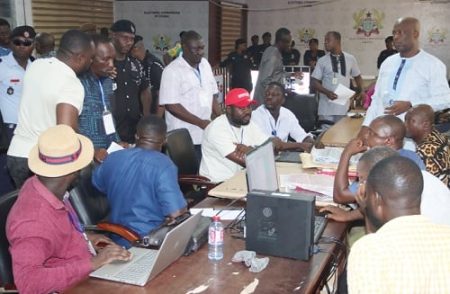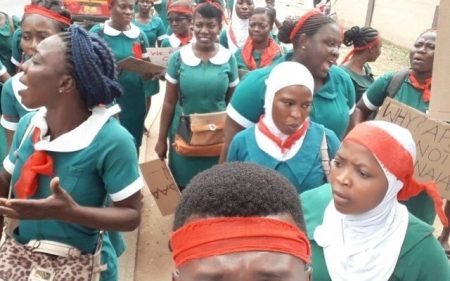The Ablekuma North Election Impasse: A Looming Constitutional Crisis?
The Ghanaian political landscape is currently embroiled in a contentious dispute surrounding the delayed parliamentary election results for the Ablekuma North constituency. This seemingly localized issue has gained national significance, prompting parliamentary intervention and raising concerns about the integrity of the electoral process. The Electoral Commission (EC), under the leadership of Chairperson Jean Mensa, has faced mounting pressure to finalize the vote count and declare a winner, months after the 2024 general elections. The protracted delay has not only left the Ablekuma North parliamentary seat vacant but has also sparked accusations of deliberate obstruction and fueled anxieties about a potential constitutional crisis. Parliament, in an attempt to resolve the impasse, has summoned EC Chair Jean Mensa to appear before a Committee of the Whole to address the delay and outline the Commission’s plans for concluding the electoral process in the constituency.
The EC’s inability or unwillingness to complete the collation of results has ignited a firestorm of criticism from various stakeholders. Civil society organizations have expressed deep concerns about the erosion of public trust in the electoral system, while political actors, particularly the Minority Caucus in Parliament, have accused the EC of partisan maneuvering. The Minority’s petition to the Ghana Police Service, requesting security for the EC to finalize the count, underscores the heightened tensions surrounding the issue and suggests a perceived threat to the Commission’s ability to operate freely and fairly. The stalemate in Ablekuma North not only disenfranchises the constituents but also casts a shadow over the legitimacy of the entire electoral process, raising questions about the EC’s competence and impartiality.
The summoning of Jean Mensa before Parliament marks a significant escalation in the effort to address the Ablekuma North election saga. Parliament’s decision to constitute a Committee of the Whole to hear from the EC Chair reflects the gravity of the situation and the need for a comprehensive explanation of the delay. The two questions posed to the EC Chair are likely to focus on the specific reasons behind the prolonged collation process and the steps the Commission intends to take to bring the matter to a swift and conclusive end. The parliamentary inquiry aims to hold the EC accountable for its actions and ensure transparency in the electoral process. The outcome of this parliamentary intervention will be crucial in determining the future course of action in Ablekuma North and could have far-reaching implications for Ghana’s electoral system.
Beyond the Ablekuma North election controversy, the Ghanaian Parliament is also grappling with other pressing national issues, including the devastating impact of recent nationwide flooding. The Minister for the Interior and the Minister for Works, Housing, and Water Resources are scheduled to brief Parliament on the government’s response to the floods and its plans to mitigate future risks. The flooding, which has caused widespread damage and displacement, highlights the vulnerability of Ghana’s infrastructure and the urgent need for effective disaster preparedness and response mechanisms. Parliament’s engagement with the relevant ministers underscores the legislative body’s role in overseeing government actions and ensuring accountability in addressing critical national challenges.
The concurrent parliamentary sessions dealing with the Ablekuma North election delay and the nationwide flooding demonstrate the multifaceted nature of governance and the complex challenges facing Ghana. While the election impasse represents a specific threat to the democratic process, the flooding crisis exemplifies broader concerns about environmental resilience and the government’s capacity to protect its citizens from natural disasters. Both issues demand immediate attention and decisive action from the government and relevant institutions to restore public confidence and ensure the well-being of the Ghanaian people. The parliamentary deliberations on these matters will provide an important platform for public scrutiny and contribute to shaping the national response to these pressing challenges.
In conclusion, the ongoing saga surrounding the Ablekuma North parliamentary election results has exposed critical vulnerabilities in Ghana’s electoral system and raised serious questions about the impartiality and effectiveness of the Electoral Commission. The parliamentary summons of EC Chair Jean Mensa represents a crucial step towards addressing the delay and restoring public trust in the electoral process. However, the resolution of this impasse must go beyond simply completing the vote count. It requires a thorough examination of the systemic issues that contributed to the delay and the implementation of necessary reforms to prevent similar occurrences in the future. Furthermore, the government’s response to the nationwide flooding crisis, which will also be scrutinized by Parliament, underscores the importance of effective disaster preparedness and response strategies. The confluence of these two critical issues highlights the interconnected nature of governance and the need for a comprehensive approach to addressing national challenges.






